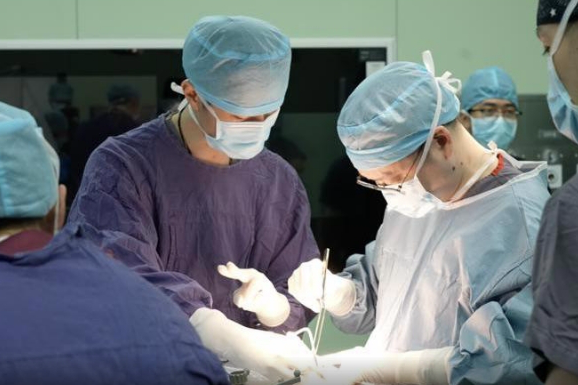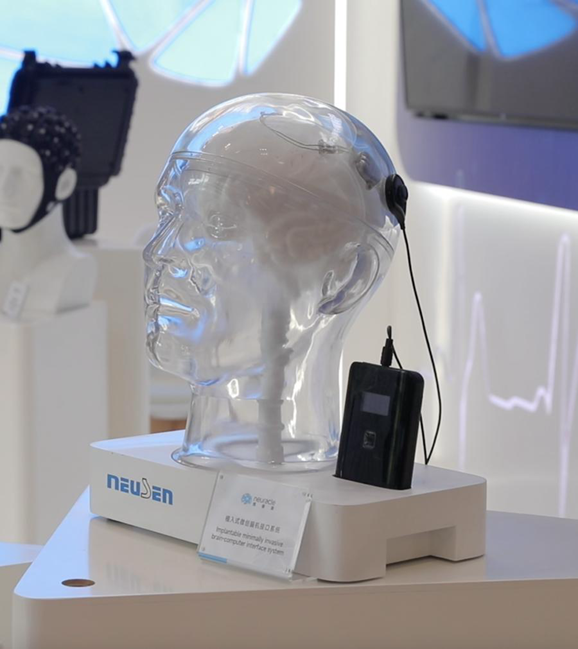
Doctors at Huashan Hospital of Fudan University perform Shanghai’s first clinical trial of NEO brain-computer interface implant surgery. [Photo/Shanghai Observer]
Shanghai marked a breakthrough in the biomedical field with the successful completion of its first brain-computer interface implant surgery as part of a clinical trial.
The NEO BCI system, a collaborative effort between brain science technology company Neuracle and Professor Hong Bo’s team from Tsinghua University’s Department of Biomedical Engineering, was utilized in the surgery, which took place at Huashan Hospital of Fudan University in Shanghai.
The 38-year-old patient, identified by the surname Dong, had been grappling with severe spinal cord injury and hand paralysis since a car accident four years ago. Struggling to grasp objects or stand independently, Dong underwent the surgery at the hospital’s Hongqiao campus, a procedure that lasted 1 hour and 40 minutes.
Remarkably, just one month post-surgery, Dong displayed significant progress, demonstrating the ability to smoothly lift a cup of water using an airbag glove.

A schematic model illustrates the implantation of the NEO brain-computer interface into the brain. [Photo provided to Jiefang Daily]
The implanted NEO BCI device is a semi-invasive, coin-sized system positioned beneath the scalp without causing harm to brain cells. It incorporates a self-developed brain function localization system, achieving precision at the millimeter level.
A week after the surgery, Dong was discharged and began fine-tuning the device with the assistance of Tsinghua engineers.
Following weeks of dedicated rehabilitation, Dong achieved a success rate of 80 to 90 percent accuracy in independently performing tasks like holding a water bottle or an apple.
The BCI system operates by wirelessly transmitting neural signals from the brain to an external device through a non-invasive setup. This design enhances signal stability and safety while safeguarding neural cells from harm.
The success of this surgery not only underscores the potential of BCI technology in clinical settings but also offers valuable insights for future applications of such technologies. Experts foresee BCIs playing a crucial role in enhancing the quality of life for patients with neurological conditions, enabling them to undertake complex tasks like writing.
Neuracle, under Hong’s guidance, is set to conduct large-scale clinical trials in 2025, with plans to carry out 30 to 50 BCI implant surgeries nationwide.
As the biomedical sector stands as one of Shanghai’s three key industries, the city is actively promoting the advancement and utilization of BCI technology. It is hoped that these developments will pave the way for the analysis of various brain functions such as language decoding and consciousness recovery, ushering in a new era of medical innovation and patient care.
Source: Shanghai Observer
,https://english.shanghai.gov.cn/en-Latest-WhatsNew/20241210/51d35ee49f2349f9a8d80396a9f72b44.html
